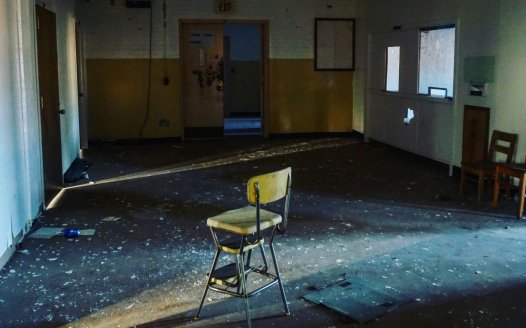Study: Nonreligious children excluded in religious education
Posted: Wed, 7th Dec 2022
Nonreligious children may find religious education lessons "excluding", researchers have found.
A recent study published in Journal of Religious Education concluded religious education (RE) "needs to change" in order to meet the needs of nonreligious pupils.
The study, which was based on interviews with children, parents and teachers at three primary schools in England, said finding "ways to better engage" nonreligious children in RE is an "urgent task", as they represent "the new normal" in the UK's religious landscape.
The 2021 Census revealed that for the first time, less than half the population in England and Wales are Christian (46%), while the number of those without a religion has risen to 37%, making this the second largest religion or belief group.
RE is the only compulsory subject in England that is locally determined and is largely controlled by religious interest groups on the committees which determine the syllabus, even in nonreligious schools. Representatives of nonreligious worldviews are often excluded or denied voting rights on RE committees. Schools with a religious character must teach RE in accordance with the beliefs of the religion or denomination of the school.
In Wales, RE has been renamed 'religion, values and ethics' and must teach religious and non-religious worldviews.
RE 'violating' children's sense of "equality and fairness"
The researchers said many nonreligious children are "not being given meaningful opportunities to explore their own worldviews". They found debates about religion in RE are "perhaps more likely to exclude those children" who find questions about belief in God are "of little relevance".
One pupil said being nonreligious was not discussed in RE, which made her feel "not really cared about". Other children at the same school also expressed that they would like nonreligious viewpoints to be included in RE.
Some children had "inhibitions" around discussing their own perspectives in RE due to "worries that sharing their views might risk disrespecting others".
Social justice, equality and the environment were issues "of considerably more salience" for nonreligious children than belief or non-belief in gods, the researchers found.
Children's views included the idea that everyone "should be able to determine their own beliefs", that everyone "should be treated equally regardless of belief".
RE could therefore be experienced as "violating their own commitment to principles of equality and fairness", the researchers said.
Some teachers described organised religion as "hypocritical" or "immoral", especially on issues related to gender and sexuality. Some pupils also expressed that their rejection of religion related to gender equality.
The researchers said their findings support proposals to include nonreligious worldviews in the curriculum, which "can give pupils a vocabulary through which to be able to express their worldviews in a way that is currently not happening for many".
NSS: "More radical reforms" needed than simply including nonreligious worldviews
NSS head of campaigns Megan Manson said: "This study suggests RE in England needs a fundamental rethink.
"Ensuring nonreligious worldviews are included would be a start. But more radical reforms are needed to meet the needs of children today.
"The research demonstrated many children are far more interested in issues relating to social justice which are pertinent to their everyday experiences.
"Schools urgently need a subject that will allow pupils to explore these topics – without forcing them through the prism of religion, which for many pupils is alienating and irrelevant.
"A new civics or citizenship subject, where objective and balanced education about religion is included but does not dominate, would enhance pupils' engagement and understanding of some of the most important yet difficult social issues they will confront as they grow up."
What the NSS stands for
The Secular Charter outlines 10 principles that guide us as we campaign for a secular democracy which safeguards all citizens' rights to freedom of and from religion.








